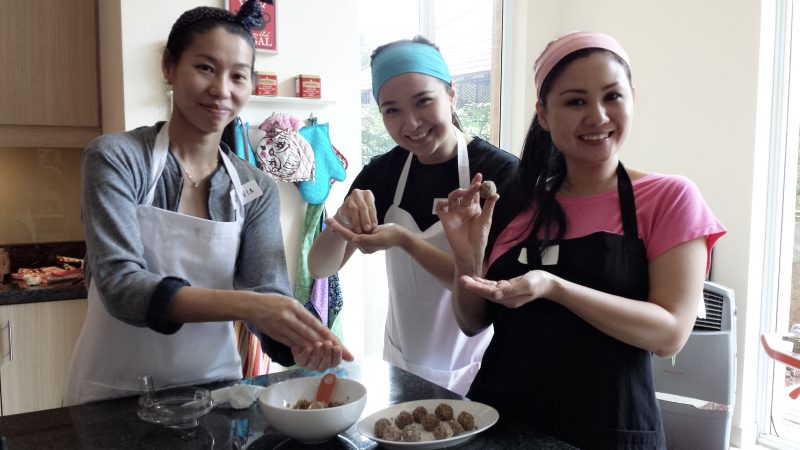Indonesia Makan Sayur is a community that tries to raise awareness of the health benefits of eating plant-based foods. Through Instagram, Facebook, and their recently launched blog, the initiative uses the power of social media to spread their message to the Indonesian public of living a healthy life through consuming the right foods. 
Being a vegan is somewhat becoming a trend. But when people spontaneously commit to a specific lifestyle, especially one that deals with a great degree of awareness like one’s eating habits, they are bound to face challenges. Youngsters, for instance, have the tendency to proudly advocate a vegan lifestyle, while in reality they lack the nutritional knowledge to be able to sustain such a diet.
One example that demonstrates people’s lack of awareness when it comes to diet is protein. According to the initiator of Indonesia Makan Sayur, Sophie Navita, only 20 percent of our daily nutritional intake needs to be made up of protein – a figure much lower than most would assume. Navita thinks that if a person truly understands nutrition, they would know that it is not exactly protein that is required by the body. “When you actually break it down, it is not the protein per se that you need, but amino acids, which are produced by the body when proteins are digested.”
Navita understands that different diets work for different people and the key is to listen to your body and learn which works best for you. “If someone follows a diet without actually listening to him or herself, then it usually won’t last long,” she says.
Founded in 2003, Indonesia Makan Sayur strives to educate the public in Indonesia about the importance of consuming a healthy diet. Previously, people were not as enthusiastic when hearing the word ‘vegan’ or ‘vegetarian’. Because of this, Sophie tried to translate the term ‘plant-based’ into something catchy yet intriguing, resulting in ‘Indonesia Makan Sayur’. Originally starting as just a hashtag on her personal social media, thousands of followers caught on.
With currently over 22,000 followers on Instagram, a Facebook page, and a recently launched blog, Sophie is recognizing the power of social media to bring people into the conversation of consuming a healthy, plant-based diet. She realizes that the advantage of having this online community, aside from being cost-effective, is the ability to reach a wider audience while allowing the community to be engaged.
On their Instagram account, Indonesia Makan Sayur promotes their activities by posting pictures of food that does not contain meat on ‘Meatless Monday’; delivering healthy recipes every Wednesday with the hashtag ‘Raburesep’ (Wednesday’s recipe); and promoting food movements across Indonesia every Tuesday and Thursday. Additionally, they hold writing and food competitions to further motivate followers.
“We are slowly trying to incorporate eating more plants into the Indonesian way of living and thinking,” Sophie says.
One of the most noticeable issues Sophie has found in the Indonesian diet is the habit of jajan (snacking; usually purchased outside the house). In all honesty, even I myself struggle with this, as everywhere I turn –roadsides, malls, on campus – I am faced with the urge to purchase an unhealthy snack. Although it does come with the benefit of serving as a tourist attraction, Sophie does not recommend this culture to continue to the point of damaging a person’s health. “How far are you willing to be stuffed by this jajanan culture to not let it affect your health?” she asks.
“When the Portuguese travelled here hundreds of years ago, they were after spices,” Sophie adds. “We are so used to incorporating spices into our cooking,” she suggests. As a consequence, Sophie says we are dealing with the burgeoning use of MSG in the food sold in restaurants and on the streets, as they try to match our tongue’s intrinsic demand for flavourful tastes.
Sophie is also concerned with the mentality of Indonesians when it comes to living a healthy lifestyle. She thinks that people will always find excuses to compensate for their unhealthy ways of eating. For one, she finds that people normally blame the fast pace of today’s world as a reason for why they no longer have time to cook for themselves.
If we understand the need to not just please our taste buds, but more importantly feed our bodies with nutrition, then we might have a chance for a healthy lifestyle. Sophie concludes, “Are you eating just for the momentary pleasure your tongue gets, or are you eating to feed your cells that actually help you to function?”




